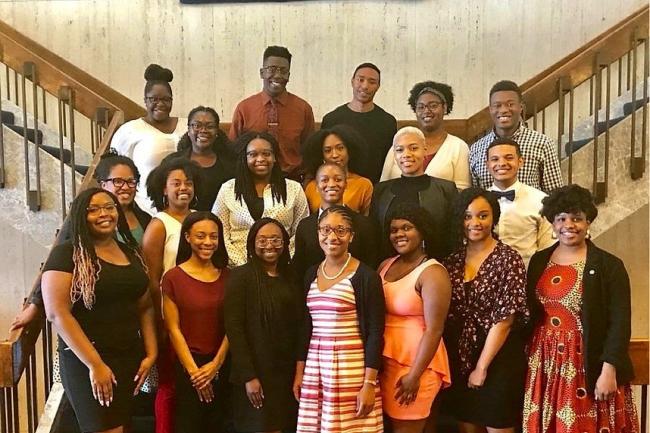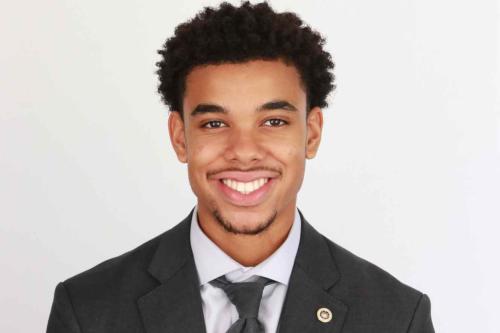Howard undergraduates considering careers in medicine, law and academia are exposed to a world-class medical school, dental school, law school, and graduate program from the moment they step on campus.
However, students at other historically Black colleges and universities are often at a disadvantage, with many not knowing the best ways to prepare themselves for graduate and professional schools of their choice.
Through an innovative Summer program, Howard is helping to change that.
“Howard has long operated from the old proverb, ‘to whom much is given, much is expected,’” says Calvin Hadley (BA ’08), senior adviser for strategic initiatives in the Office of the President. “President Frederick has been a leader, not only for our student population and alumni, but for the larger HBCU community.”
To whom much is given, much is expected.”
Recognizing the prominent role Howard’s medical school has played in the education of Black health care professionals, Dr. Wayne A. I. Frederick wondered how the University could help prepare students from other HBCUs for a career in medicine whether they chose to attend Howard or not. Hadley worked with Julie C. Andrist, director of the Center for Preprofessional Education, to build a program that would turn that idea into a reality.
The Pre-Health Scholars Summer Enrichment Program (PHSEP) launched in the Summer of 2015 to prepare undergraduates at Howard and other HBCUs for medical and dental school. During the four-week program, students received training for the Medical College Admission Test (MCAT) and Dental Admission Test (DAT), as well as guidance on the entire medical and dental school application process. Students at Howard’s medical and dental schools served as mentors and gave scholars a glimpse into life studying dentistry and medicine at the graduate level.
“We’ve provided the students with the structure and foundation to move forward,” says Andrist. Already the program is yielding positive results. For example, 80% of the Pre-Health Scholars from the 2020 cohort have been accepted into medical and graduate schools, Andrist says.
The success of the Pre-Health Scholars program led President Frederick to ponder whether the program could be replicated at the law school. “It was really a no-brainer for our dean to support President Frederick’s vision,” says Keri Foster, director of academic success and bar preparation for the School of Law. “It is keeping with the law school’s mission to create social engineers.”
The Pre-Law Scholars Summer Enrichment Program (PLSEP) welcomed its first cohort in 2016. Students received training for the Law School Admission Test (LSAT). Current law students served as mentors, and through visits with lawyers and judges, students got to see first-hand what it was like to pursue different legal careers.
We’ve provided the students with the structure and foundation to move forward.”
The following year, Keneshia Grant, PhD, an associate professor in the College of Arts and Sciences, attended a conference that explored ways to increase the number of Black PhDs. “It occurred to me while I was sitting in that session that since we have a pre-health enrichment program and a pre-law enrichment program, we should have a pre-PhD enrichment program,” Grant says.
She pitched the idea to Dr. Frederick and the Pre-PhD Scholars Summer Enrichment Program (PPSEP) launched in 2017 to prepare HBCU students to apply to PhD programs in the humanities.
While students receive a wealth of knowledge through the programs, they don’t have to pay for it. “We know that finances are often a barrier to success, so we created a program where we could give students a stipend and everything could be paid for,” Hadley says.
Students also benefit from the camaraderie they build with fellow HBCU students, as well as their relationships with Howard students and faculty. “We’re really doing everything that we can to prepare students academically, emotionally, and every other way imaginable,” Hadley says.






